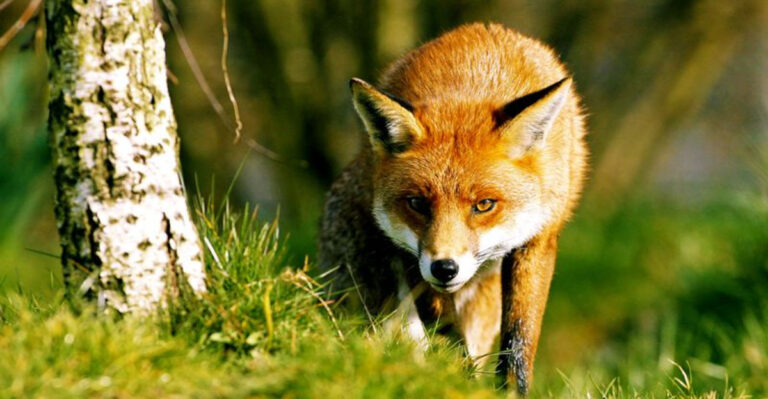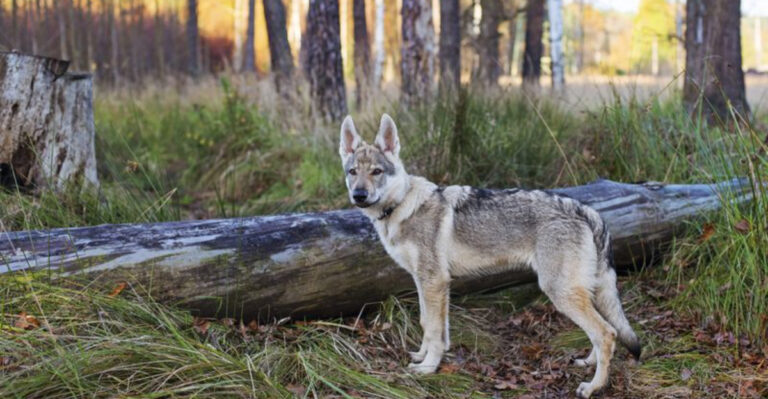13 Nutty Delights Your Dog Can Safely Enjoy
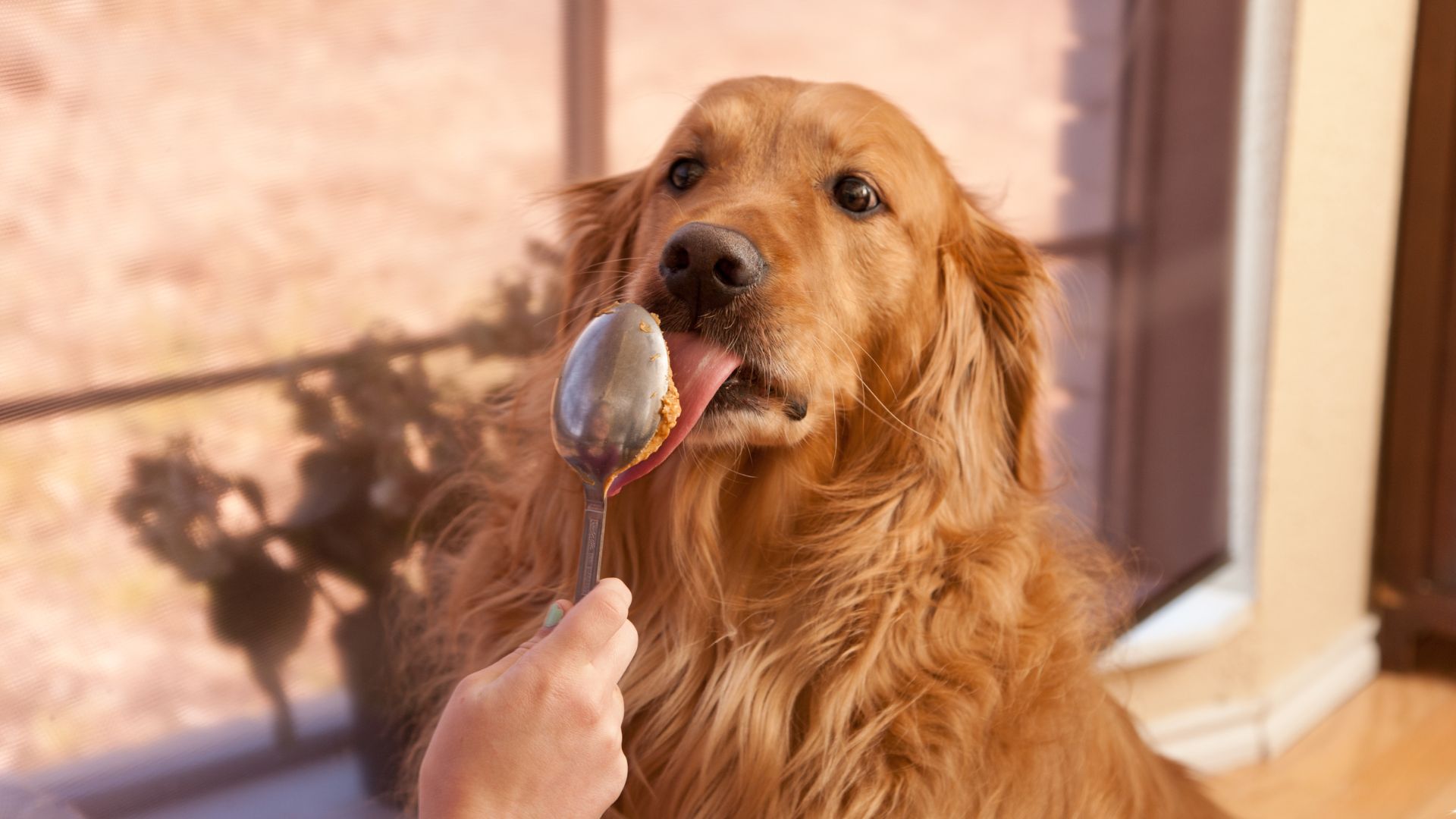
Dogs love to snack just like we do! While some human treats can be harmful to our furry friends, certain nuts are not only safe but can also provide valuable nutrients for your pup.
In this guide, we’ll explore types of nuts and seeds that are both delicious and beneficial for your canine companion, ensuring their snacks are as healthy as they are tasty.
1. Peanuts

Peanuts are a safe treat for dogs, offering a good source of protein and healthy fats. However, it’s important to ensure that they are unsalted and do not contain any added sugar or artificial sweeteners, like xylitol, which are harmful to dogs.
Giving peanuts in moderation can be beneficial, and they can even be used as a training treat. Always check for potential allergies before offering them in large quantities.
2. Pine Nuts
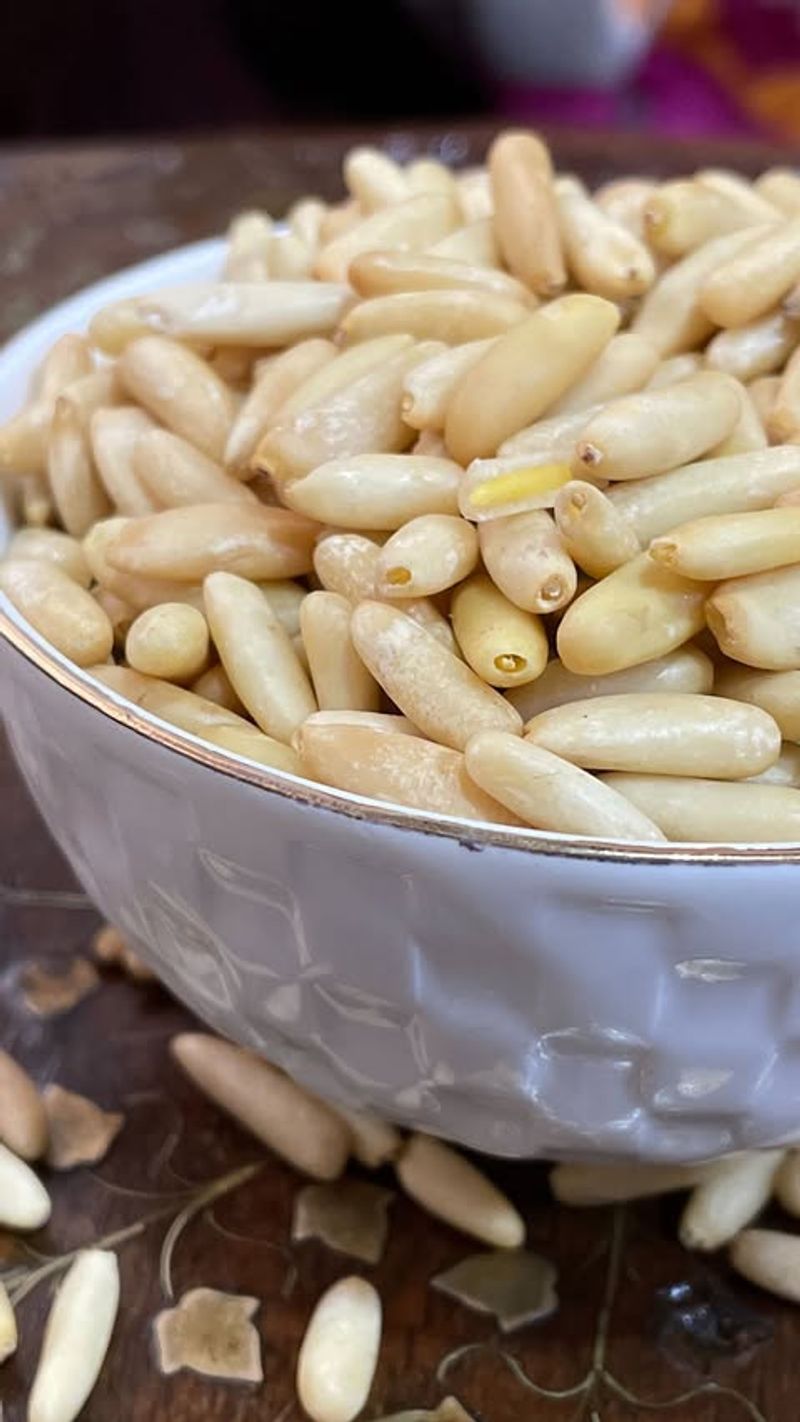
Pine nuts are rich in healthy fats and vitamins, making them a nutritious snack for dogs when given in moderation. These small nuts are packed with antioxidants and protein, which can benefit your dog’s skin and coat health.
Be sure to remove the shells and offer pine nuts sparingly, as they are high in calories, and too many can lead to an upset stomach.
3. Pecans
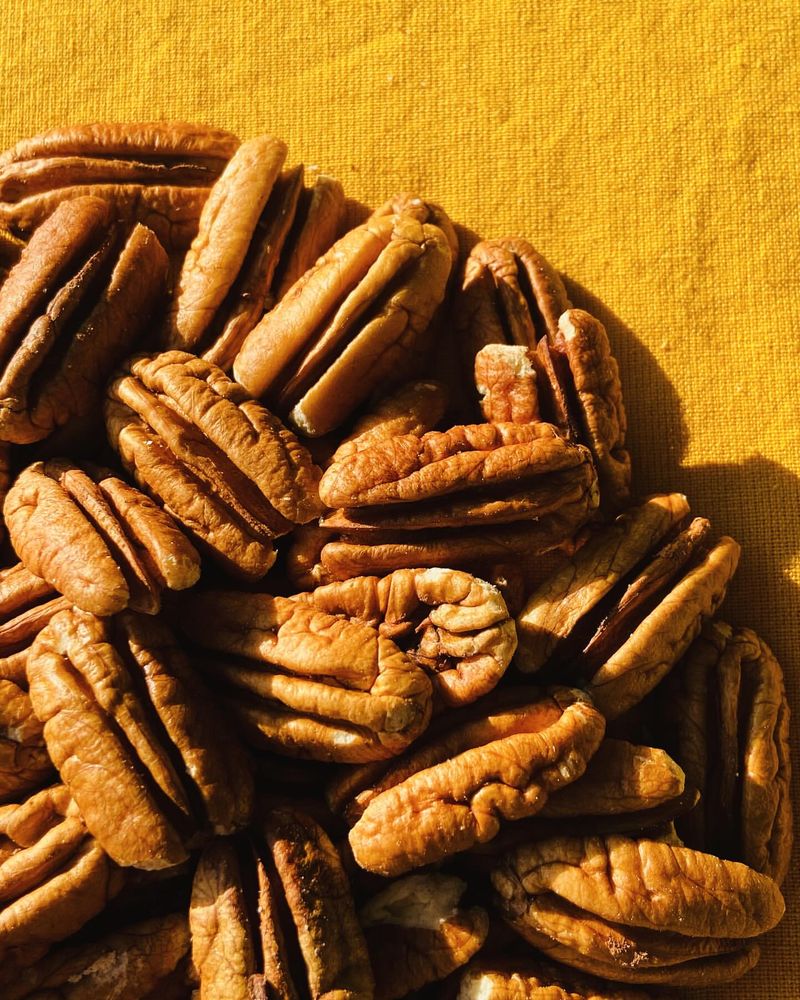
Pecans are generally safe for dogs but should be fed in small amounts due to their high fat content. While they contain beneficial nutrients like antioxidants, offering them in moderation helps to avoid potential digestive issues.
It’s essential to ensure they are unsalted, and you should also be cautious about mold growth on pecans, which can be toxic to dogs.
4. Hazelnuts
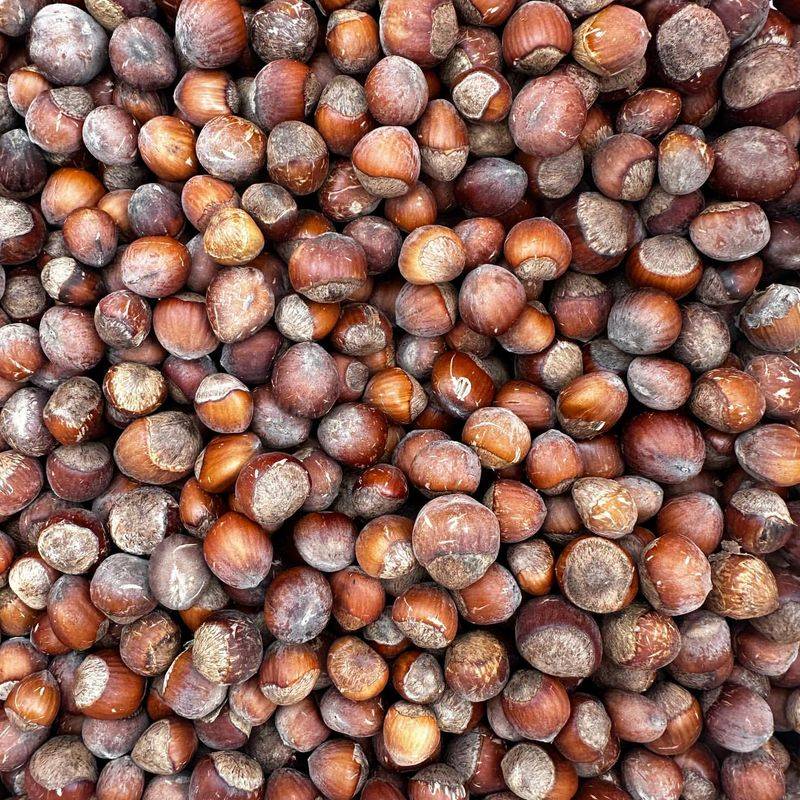
Hazelnuts can be a tasty and nutritious treat for dogs in small portions. Packed with vitamins, minerals, and healthy fats, they can provide a good energy boost. However, be careful not to give too many, as they are high in calories.
Always remove the shells, as they can pose a choking hazard. Like other nuts, it’s important to offer them as an occasional treat rather than a regular snack.
5. Macadamia Nuts
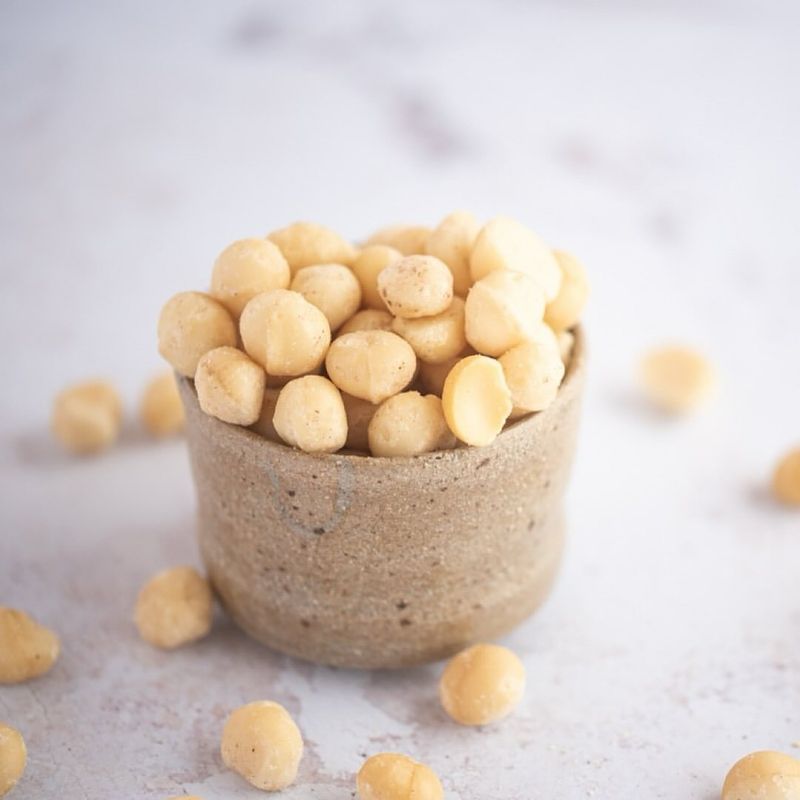
Macadamia nuts should be avoided when feeding your dog, as they are toxic to them, even in small amounts. Ingesting macadamia nuts can lead to symptoms such as weakness, vomiting, tremors, and hyperthermia.
If you suspect your dog has consumed macadamia nuts, it’s important to contact a vet immediately for guidance and care.
6. Almonds

Almonds are safe for dogs to eat in small quantities, but they should be unsalted and given in moderation. They are rich in healthy fats, fiber, and protein, which can be beneficial for your dog’s diet.
However, due to their high fat content, they can cause digestive issues or upset stomachs if overconsumed. It’s also best to avoid flavored almonds that may contain added spices or artificial sweeteners.
7. Brazil Nuts
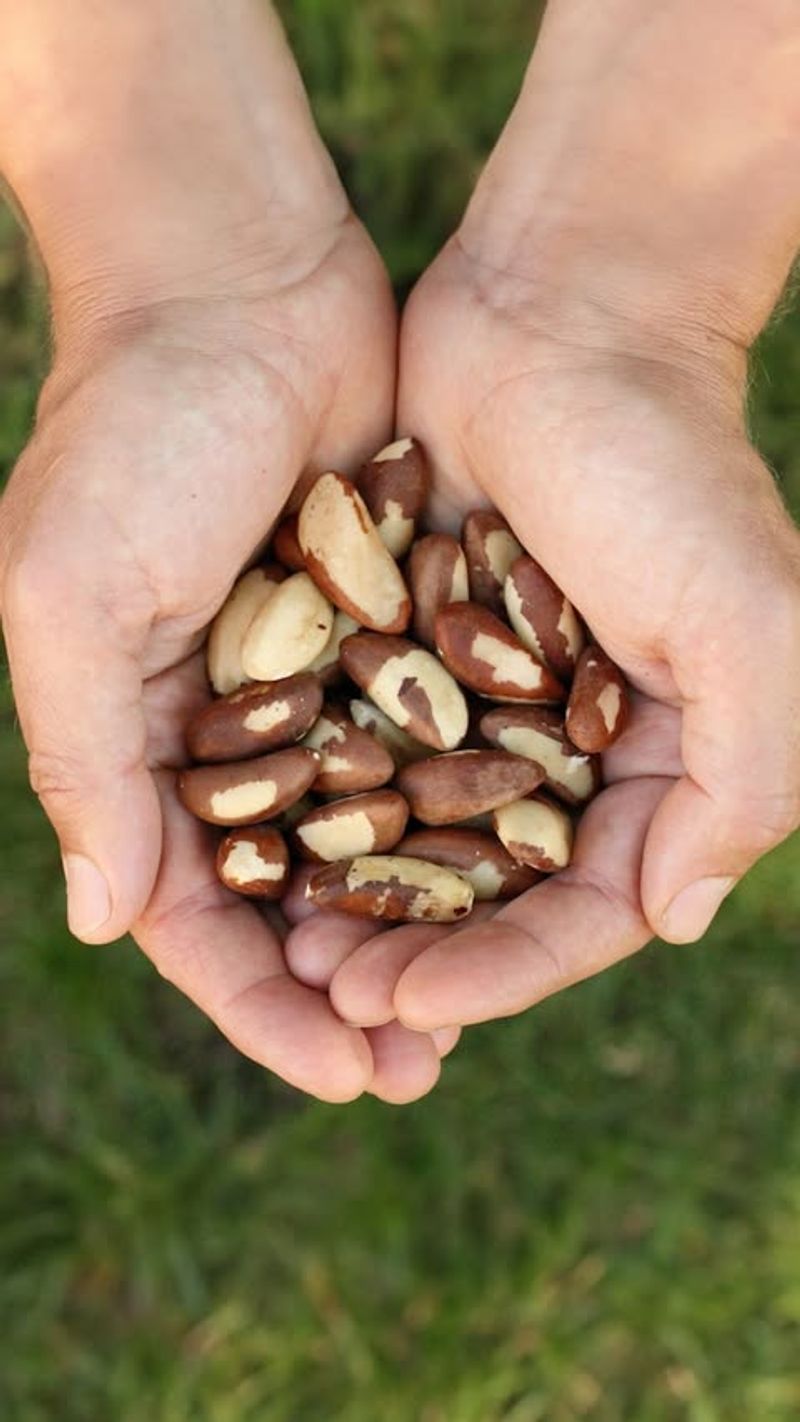
Brazil nuts are not toxic to dogs but should be given in moderation due to their high-fat content. These nuts are packed with selenium, a mineral that is beneficial for your dog in small amounts, but too much can cause toxicity.
Offering Brazil nuts as an occasional treat can provide some health benefits, but they are calorie-dense, so careful portion control is key.
8. Pistachios
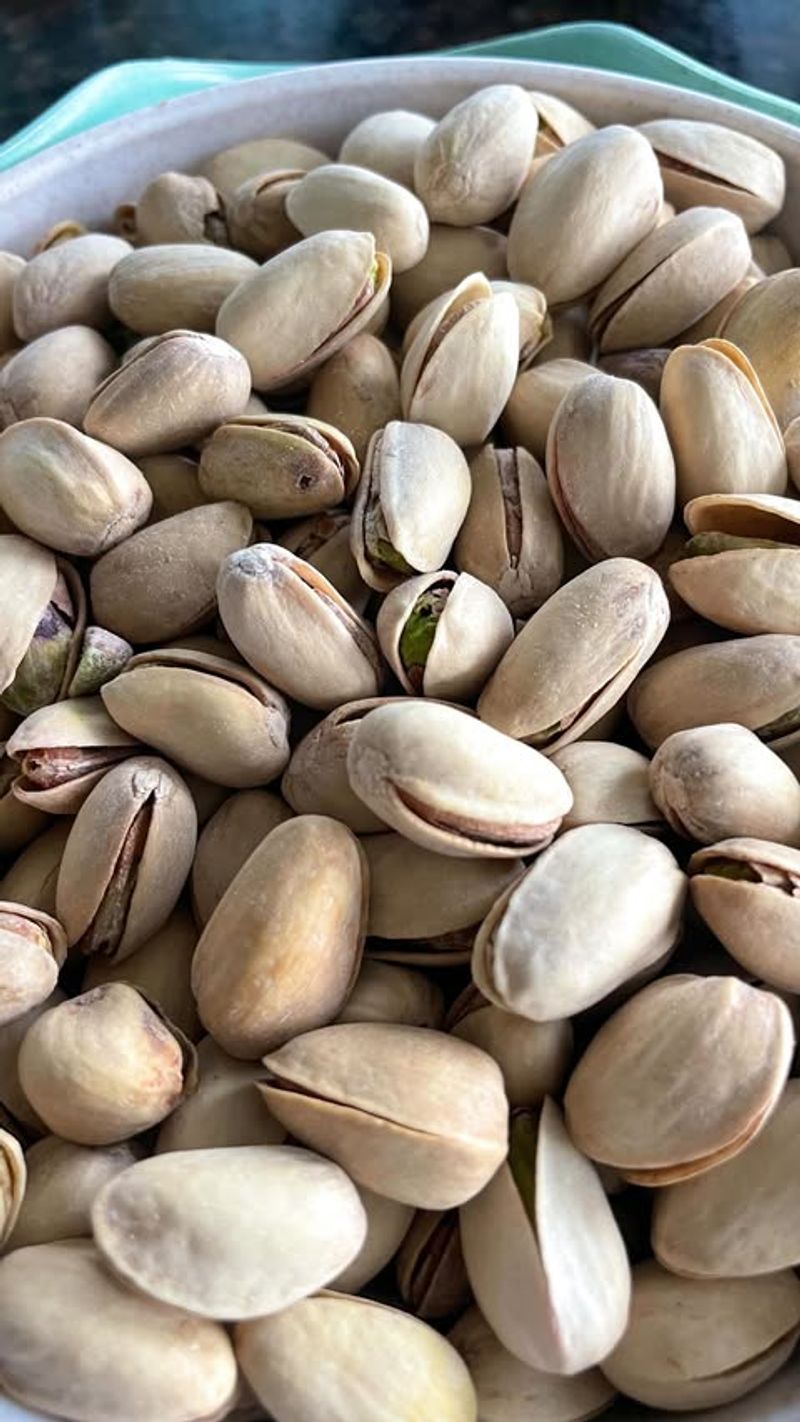
Pistachios are generally safe for dogs when given in moderation, but it’s important to ensure they are unsalted and not flavored with additives like garlic or onion, which can be toxic to dogs. Pistachios are rich in healthy fats and protein, making them a good energy source.
However, they should be fed sparingly as too many can lead to an upset stomach or weight gain due to their calorie content.
9. Cashews
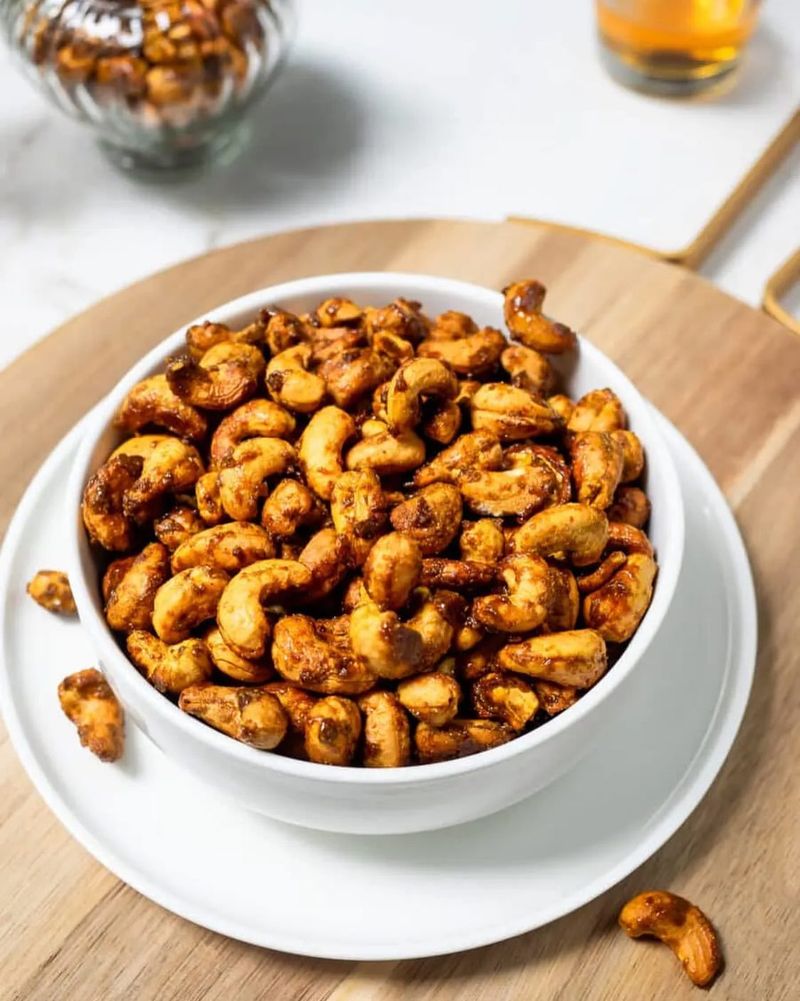
Cashews are a safe nut for dogs to consume in moderation. They are rich in protein, healthy fats, and minerals that can support your dog’s overall health.
However, they are also high in calories, so it’s best to offer them in small amounts to prevent any digestive issues or weight gain. Like all nuts, ensure that they are unsalted and do not contain any harmful additives.
10. Chestnuts
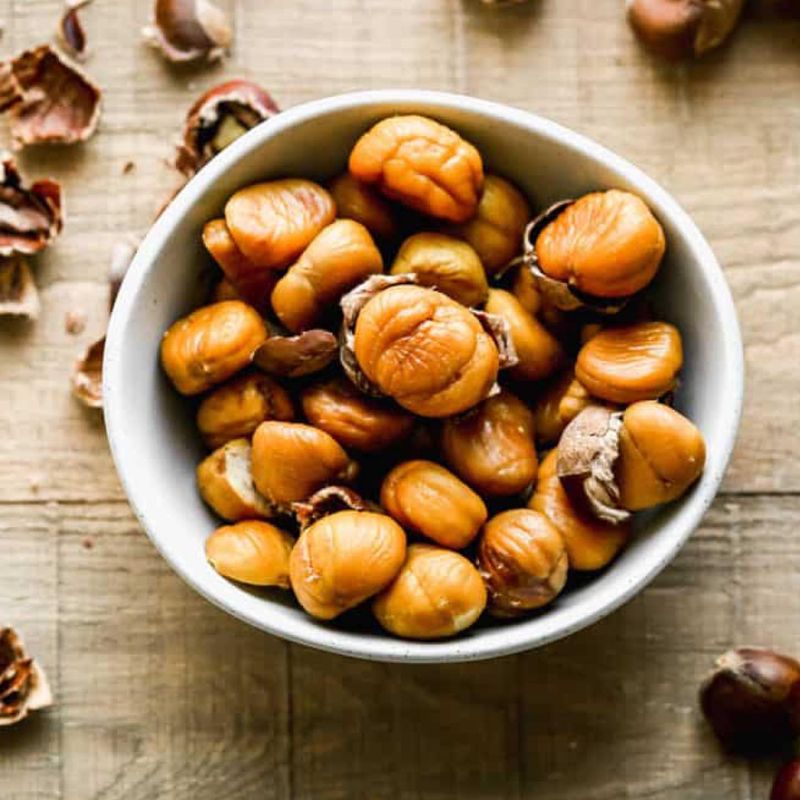
Chestnuts are a safe and healthy snack for dogs, as they are lower in fat compared to other nuts and are packed with beneficial nutrients like fiber and antioxidants.
They can be given to dogs either raw or roasted, but it’s important to avoid adding any seasoning or salt. Offering chestnuts in moderation can help support your dog’s digestive health and provide them with a tasty treat.
11. Walnuts
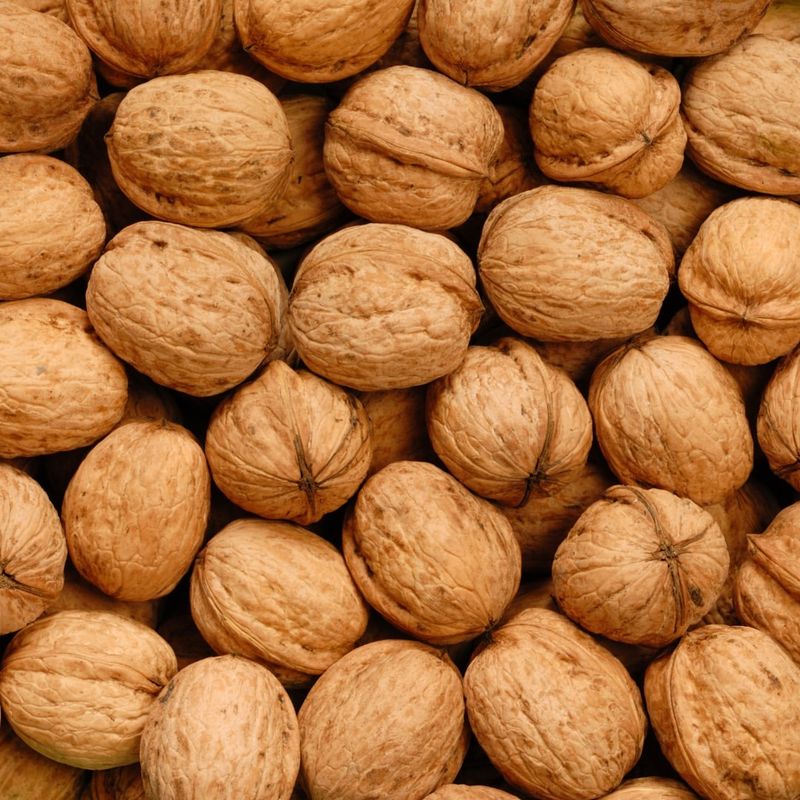
Walnuts are generally safe for dogs but should be given in small amounts. They are rich in omega-3 fatty acids, which are good for your dog’s coat and overall health.
However, walnuts can be high in fat, and excessive amounts can lead to gastrointestinal upset or pancreatitis. Be cautious about the potential for mold growth on walnuts, which can produce toxins that are harmful to dogs.
12. Sunflower Seeds

Sunflower seeds are another safe option for dogs in moderation. Packed with vitamins and healthy fats, they can provide a boost to your dog’s skin and coat.
However, they should be given unsalted and without the shell to reduce any choking risks. Just a few seeds are enough for a tasty and nutritious treat.
13. Pumpkin Seeds
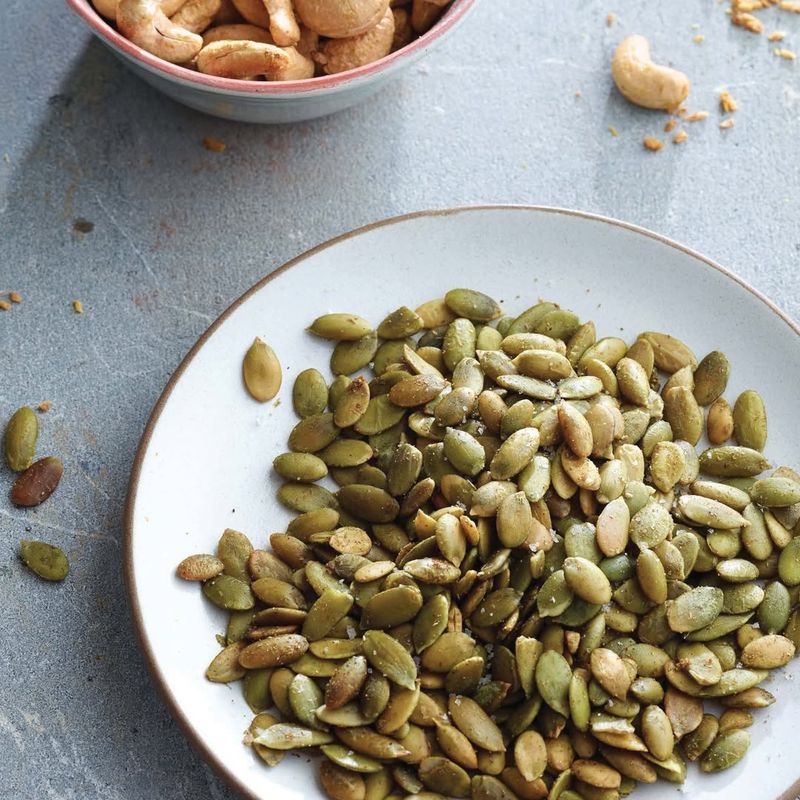
Pumpkin seeds are a healthy snack for dogs, as they are rich in fiber, antioxidants, and beneficial fatty acids. These seeds can help promote healthy digestion and improve overall gut health.
While they can be given raw, it’s best to remove the shell to prevent choking hazards, and make sure to offer them in moderation to avoid excessive calorie intake.

